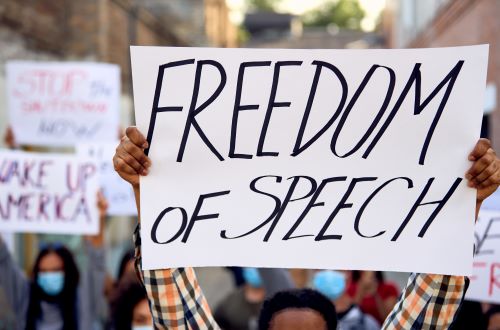 The election campaign is in its final week. The campaign has heated up, and so has the rhetoric. A recent decision of the Employment Court makes it clear that employees should be cautious about using their social media platforms to express their personal views when the posts could negatively impact their employer.
The election campaign is in its final week. The campaign has heated up, and so has the rhetoric. A recent decision of the Employment Court makes it clear that employees should be cautious about using their social media platforms to express their personal views when the posts could negatively impact their employer.
Amanda Turner was employed by the Wairarapa District Health Board (DHB) as a registered palliative care nurse until she was dismissed in April 2021. Ms Turner claimed that in dismissing her the DHB acted in a discriminatory manner and ignored her right to freedom of expression.
Ms Turner had 86 “Facebook friends”. They were accessible to other employees of the DHB and employees of the aged residential care facility where she worked. The DHB became aware that Ms Turner was posting antivaccine information on Facebook. Those posts were causing staff that looked up to Ms Turner to question whether they should be vaccinated against Covid-19.
There were also a substantial number of posts that expressed concern about Muslim immigration; they were derogatory towards Muslims generally, as well as particular Muslim individuals. Other posts not raised by the DHB included posts that were derogatory of a nonbinary person and those attacking the Government and the then Prime Minister.
As part of her employment agreement Ms Turner was required to comply with the DHB’s policies, including the Code of Conduct and the DHB’s social media policy. That policy referred to the risks to the DHB of social media being mismanaged by individuals, including damaging the DHB’s reputation.
In her defence, Ms Turner said that her comments about Muslim immigration were a political belief and that when she was dismissed she was being discriminated against because she is a Christian. Judge Holden rejected that and said that Ms Turner’s anti-Muslim comments were not immune from scrutiny and could be weighed against the DHB’s policy and Code of Conduct she was expected to adhere to.
The Judge said there was nothing to suggest Ms Turner’s Christianity had any bearing on the DHB’s decision. She said that freedom of religion cannot be taken to include the freedom to discriminate against other religions or to make derogatory comment about other religions and the people who practise them without consequences. Ms Turner’s right to hold religious or political beliefs did not prevent the DHB from taking disciplinary action in respect of her posts criticising Muslims, including attacking individual Muslim New Zealanders.
In respect of the posts regarding the vaccine, the Judge said that they were not covered by any protection against discrimination based on political opinion. The posts were directly contrary to the position being taken by the Ministry of Health and the DHB. The posts had the potential to undermine the trust and confidence of the public in the DHB, which was inconsistent with the social media policy and Ms Turner’s obligations to her employer.
It was accepted that Ms Turner’s Facebook posts were made outside her work time and that her Facebook page had certain privacy settings in place. However, the Judge said if the out of work conduct could negatively impact on the employer, for example by bringing it into disrepute, or if it erodes the trust and confidence the employer has in the employee, the employee’s out of work conduct can be the subject of disciplinary action.
The Judge commented that even if the material in the posts had been sent directly to one or only a few other employees or professional contacts, that could have been of concern to the DHB; being posted on a Facebook page with a much wider audience was even more of an issue.
Ms Turner also claimed that she has a right to free speech and that she is protected by New Zealand’s Bill of Rights Act (BORA). The BORA applies to acts done by the state. It does apply to some actions of the DHB. However, the Judge did not accept that the BORA applies to employment decisions.
In any event, the Judge said that the rights under the BORA are not absolute; they are subject to reasonable limits. Even if the BORA applied, the rights do not protect everything that an employee might say, particularly if it is contrary to the interests of the employer. The Judge concluded that Ms Turner could not use the BORA as a shield to protect herself from the consequences of her statements. She held that Ms Turner’s dismissal was justified.
While the judgment is pragmatic, it does highlight that New Zealanders may have to balance their right to freedom of expression and free speech with the obligations they may have to their employer. Where that line may fall is likely to be harder to determine in the heat of a general election. Read more....

